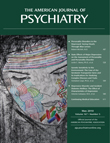Depression and Diabetes: More on What the Relationship Might Be
The relationship between depression and diabetes is of special interest in the 21st century since both conditions are major contributors to the global burden of disease. Almost 15 years ago, Eaton and collaborators (1) reported, from the Baltimore Epidemiologic Catchment Area Study, an association between major depressive disorder, but not milder forms of depression, and incident diabetes. This association has been replicated on a number of occasions and supported by the most recent meta-analysis from the Hopkins group, which also extended it to milder forms of depression (1). While the depression-diabetes relationship appears bidirectional, such that diabetes also increases risk for depression, the association in the depression-to-diabetes direction appears stronger than the inverse (2, 3). Further, this association has been replicated across several ethnic and racial groups, including Caucasians, African Americans, Hispanics, and Chinese (3). Hence, the existence of a link between depression and the later onset of diabetes is well established.
The precise nature of the association remains to be elucidated. Given the heterogeneity of depression, it is likely that several factors are involved. Depression is associated with severe obesity (4), lack of physical activity, and poor self-care, all risk factors for diabetes. Further, depression can be a state of "chronic stress" with associated hypercortisolemia. There may be other biologic risk factors for diabetes in depressed individuals (5).
Despite the underdiagnosis and undertreatment of depression, when it is identified it is usually treated with antidepressants, which may elevate diabetes risk. A recent nested case-control study in the Journal (6) provided strong evidence for a modest association between use of most antidepressants and the incidence of diabetes. While not conclusive, that study (6) indicated specifically that long-term use of antidepressants at moderate or higher doses increases the risk of diabetes by almost twofold.
In this issue of the Journal, Campayo and collaborators report results from a well-conducted study in Zaragoza, Spain, that further refine our understanding of the depression-diabetes association (7). Their work suggests that the relationship between depression and diabetes is independent of the use of antidepressants. While their results did not support an association between antidepressant use and incidence of diabetes, the overall risk linking antidepressants to diabetes was comparable to that reported by Andersohn et al. (6) but was statistically not significant, perhaps because of limited power. Since Campayo and colleagues did not investigate duration or dose of antidepressants as risk factors for diabetes, their findings are consistent with those of Andersohn et al.
The findings from Zaragoza are important for three reasons. First, they provide a confirmatory estimate of the risk of diabetes attributable to depression (population attributable risk). That estimate of almost 7%, close to the 9% previously provided by Mezuk et al. (2), indicates that depression may account for a significant fraction of diabetes incidence.
Second, Campayo et al. show that the risk of diabetes extends to milder depressive syndromes in addition to major depression. Indeed, somewhat unexpectedly, less severe depression was associated with a higher risk of diabetes, compared to severe depression, perhaps because it was less likely to be treated.
Third, they report on specific characteristics of depression that pose the greatest risk for diabetes. Compared to nonpersistent or treated depression, persistent depression and, notably, untreated depression were associated with a higher incidence of diabetes. Taken together, these findings imply that successfully treating all forms of clinically significant depression should affect the incidence of diabetes at the population level.
The message that identifying and treating depression is a major public health priority is not new. Appreciating that depression may account for a significant number of new cases of diabetes further emphasizes the importance of this message. The Zaragoza findings support the view that depression reduction outweighs the risk associated with antidepressant treatment. Nevertheless, this issue is not settled and must be examined systematically in appropriately designed clinical trials.
It is critical that future research carefully examine the nature of the relationship between depression and diabetes. Of immediate importance are studies to test hypotheses examining the relative, and possibly synergistic, roles of behavioral factors (e.g., obesity, lack of physical activity) and biological factors (e.g., hypercortisolemia) in the development of diabetes among individuals with depression. Such mechanistic studies will improve our understanding of whether depression is causal of diabetes, as of yet not established, and provide direction for further therapies to reduce diabetes risk in depressed individuals. Given concerns about the "diabetogenic" effect of antidepressants, nonpharmacologic therapies that lead to depression reduction without associated pharmacologic risks require more urgent investigation in randomized trials. As evidenced by the backgrounds of several of the active investigators in this area, our colleagues in diabetology are reaching out to collaborate with us in this area because of the obvious public health implications. We must embrace these relationships, encourage funding agencies to support the necessary research, and move the field forward together.
1 : Depression and risk for onset of type II diabetes: a prospective population-based study. Diabetes Care 1996; 19:1097–1102 Crossref, Medline, Google Scholar
2 : Depression and type 2 diabetes over the lifespan: a meta-analysis. Diabetes Care 2008; 31:2383–2390 Crossref, Medline, Google Scholar
3 : Examining a bidirectional association between depressive symptoms and diabetes. JAMA 2008; 299:2751–2759 Crossref, Medline, Google Scholar
4 : Is obesity associated with major depression? results from the third National Health and Nutrition Examination Survey (NHANES-III). Am J Epidemiology 2004; 158:1139–1147 Crossref, Google Scholar
5 : A review of the evidence for a neuroendocrine link between stress, depression, and diabetes mellitus. Curr Diabetes Rev 2007; 34:252–259 Crossref, Google Scholar
6 : Long-term use of antidepressants for depressive disorders and the risk of diabetes mellitus. Am J Psychiatry 2009; 166:591–598 Link, Google Scholar
7 : Depressive disorder and incident diabetes mellitus: the effect of characteristics of depression. Am J Psychiatry 2010; 167:580–588 Link, Google Scholar



